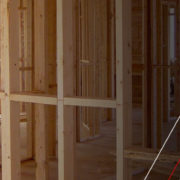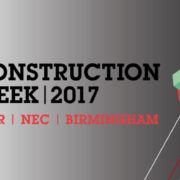Effective Cost Management in Construction Projects
Effective cost management is crucial for the success of construction projects. It ensures that projects are completed within budget, maximizing profitability while meeting quality and timeline expectations. This post outlines key strategies and best practices for managing costs in construction projects effectively.
Detailed Budget Planning
A comprehensive and realistic budget is the foundation of cost management. Key steps include:
- Accurate Cost Estimation: Gather detailed estimates for all aspects of the project, including labor, materials, equipment, and overheads.
- Contingency Funds: Allocate a portion of the budget for unexpected expenses to prevent cost overruns.
- Breakdown by Phases: Divide the budget into phases (planning, design, construction, etc.) for better tracking and control.
Regular Monitoring and Reporting
Continuous monitoring of costs is essential for staying within budget. Strategies include:
- Frequent Reporting: Generate regular financial reports to track expenditures against the budget.
- Variance Analysis: Identify and analyse variances between actual and planned costs to understand causes and take corrective actions.
- Cash Flow Management: Ensure that cash flow projections are accurate and sufficient to cover project expenses at all stages.
Effective Procurement Management
Procurement processes can significantly impact project costs. Best practices include:
- Competitive Bidding: Use competitive bidding processes to get the best prices for materials and services.
- Bulk Purchasing: Buy materials in bulk where possible to take advantage of discounts.
- Vendor Relationships: Establish strong relationships with reliable suppliers to negotiate better terms and ensure timely delivery.
Resource Optimisation
Efficient use of resources can reduce costs and improve project efficiency. Key techniques include:
- Labour Management: Optimise workforce deployment by aligning labor supply with project demands and using skilled labor effectively.
- Equipment Utilisation: Maximise the use of owned equipment and minimise the need for rentals by scheduling equipment usage efficiently.
- Material Management: Implement just-in-time delivery to reduce storage costs and minimise waste.
Technology and Automation
Leveraging technology can streamline processes and reduce costs. Examples include:
- Project Management Software: Use software like Procore, Buildertrend, or MS Project for efficient planning, scheduling, and cost tracking.
- BIM (Building Information Modeling): Utilise BIM to improve project visualisation, reduce errors, and optimise resource allocation.
- Drones and Robotics: Employ drones for site surveys and monitoring, and robotics for repetitive tasks to increase efficiency and reduce labour costs.
Change Order Management
Managing changes effectively can prevent cost overruns. Strategies include:
- Formal Change Process: Establish a formal process for approving and documenting change orders.
- Impact Analysis: Assess the cost and schedule impact of changes before implementation.
- Stakeholder Communication: Keep stakeholders informed about changes and their implications to avoid disputes
Quality Control
Investing in quality control can prevent costly rework and delays. Best practices include:
- Regular Inspections: Conduct frequent quality inspections to identify and address issues early.
- Standards Compliance: Ensure all work complies with relevant standards and specifications to avoid non-compliance penalties and rework.
- Skilled Workforce: Use qualified and experienced personnel to maintain high-quality standards.
Risk Management
Proactively managing risks can help avoid unexpected costs. Key steps include:
- Risk Identification: Identify potential risks early in the project.
- Risk Mitigation: Develop and implement strategies to mitigate identified risks.
- Insurance: Obtain appropriate insurance coverage to protect against unforeseen events and liabilities
Contract Management
Effective management of contracts can control costs and prevent disputes. Strategies include:
- Clear Contracts: Ensure contracts are clear, comprehensive, and include detailed scopes of work, timelines, and payment terms.
- Regular Reviews: Review contracts regularly to ensure compliance and address any issues promptly.
- Dispute Resolution: Establish mechanisms for resolving disputes quickly and fairly to avoid costly litigation.
Effective cost management is integral to the success of construction projects. By focusing on detailed budget planning, continuous monitoring, efficient procurement, resource optimisation, technology adoption, change order management, quality control, risk management, and contract management, construction managers can control costs and ensure project profitability. Implementing these strategies will not only help in staying within budget but also enhance overall project efficiency and success.
If you would like to discuss please contact us to arrange a consultation with one of our experts.












